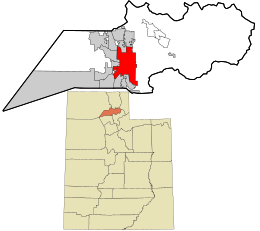
Estate planning is the preparation of tasks that serve to manage an individual’s asset base in the event of their incapacitation or death. The planning includes the bequest of assets to heirs and the settlement of estate taxes. Most estate plans are set up with the help of an attorney experienced in estate law. Estate planning involves determining how an individual’s assets will be preserved, managed, and distributed after death. It also takes into account the management of an individual’s properties and financial obligations in the event that they become incapacitated. Assets that could make up an individual’s estate include houses, cars, stocks, artwork, life insurance, pensions, and debt. Individuals have various reasons for planning an estate, such as preserving family wealth, providing for a surviving spouse and children, funding children’s or grandchildren’s education, or leaving their legacy behind to a charitable cause.
The most basic step in estate planning involves writing a will. Other major estate planning tasks include the following:
• Limiting estate taxes by setting up trust accounts in the names of beneficiaries
• Establishing a guardian for living dependents
• Naming an executor of the estate to oversee the terms of the will
• Creating or updating beneficiaries on plans such as life insurance, IRAs, and 401(k)s
• Setting up funeral arrangements
• Establishing annual gifting to qualified charitable and non-profit organizations to reduce the taxable estate
• Setting up a durable power of attorney (POA) to direct other assets and investments
Wills
Most people don’t know it, but they have an estate. An estate is simply the sum of your possessions at a given point in time during your lifetime or when you die. It can consist of your house, car, jewelry, stocks, bank accounts, life insurance and other professional or personal interests. Some estates are worth a lot more than others, of course, but large or small, most Utahans have one. The most basic, and likely the most well-known, estate planning instrument is the last will and testament. This document details your wishes regarding the distribution of your assets. In short, it specifies who gets what when you die. If you die intestate, without a will, the state steps in and decides how your estate will be handled. For your own peace of mind and the welfare of your heirs, it’s best to leave a will behind. This way, you’re more assured that others will handle your estate according to your wishes and not the state’s laws. While a valid will takes precedence over state laws, it will not keep your estate out of probate. Before a judge enforces a will, the court must first determine that it is, in fact, the decedent’s final instructions. The executor has to file the will in court and inform all known beneficiaries that the probate process has begun. Then the executor or his/her attorney must place a notice (or several notices) in a local paper. This will give creditors and unknown heirs a chance to step forward and stake a claim on your estate. A probate can be time-consuming and costly. Worse, it is only at the end of this process that your heirs can access the assets you left behind.
Revocable Trust
Trusts keep your estate out of probate and your private affairs beyond the public scrutiny of prying eyes. There are different types of estate planning trusts you can use. The revocable living trust is the most commonly used trust for estate planning purposes. The assets you place in this type of trust go directly to the named beneficiaries without passing probate. You can be both grantor and trustee of such a revocable trust. It is also referred to as an inter vivos trust. You retain control over the assets even if, technically, you no longer own them – the trust does. Because you still control the assets in a revocable trust, they may be considered in the valuation of your estate. They will skip probate but will likely include living trust assets in figuring out the estate tax your heirs have to pay. Majority of Utahans estates will likely not end up having to pay estate taxes. The current exemption is at $5.45 million per individual, twice this for married couples. As a rule, if you pass on with an estate that’s worth less than this amount, no estate taxes are due.
Irrevocable Trust
If your estate exceeds the exemption, a wise strategy is to use an irrevocable trust to hold your estate assets. The terms of an irrevocable trust cannot be changed once it has been set up. Therefore, as grantor, you no longer control the assets in an irrevocable trust. That is now a task that falls on the trustee. Assets in an irrevocable trust are exempt from probate and are not part of the valuation of a decedent’s estate. This could mean substantial savings in terms of estate taxes for your heirs. A Medicaid Trust is a power irrevocable trust into which you can convey assets. Once you do, you can become eligible to have the government cover 100% of nursing home costs.
Living Will
Sound estate planning should also make provisions for your care in the event you’re unable to do so yourself. Towards this end, you need to have a health care declaration, also known as a living will. This gives someone you name (and trust) the power to make healthcare decisions on your behalf if you become incapacitated. You may already have made your wishes known to your spouse or adult children. But if you don’t have it down in writing, the state could intervene and a legal mess can ensue. This at a time when your family cans least affords to deal with one. Along the same vein, it’s prudent to give someone power of attorney over your financial affairs. This could already be the trustee or your financial advisor, but again, this has to be in writing. When you inform them of the task you’re asking them to perform for you, make your wishes clear. Understandably, this could be a difficult and emotional conversation. But, if you want your wishes to be honored, it is a conversation you must initiate. When you can no longer make decisions for yourself, the people you want on your side are those you can trust to carry out your wishes.
Insurance
Life insurance is often included in carefully thought-out estate planning checklist. Life insurance benefits can provide continued income for your loved ones at your death. An estate planner typically advises creating an irrevocable life insurance trust (ILIT) to hold a life insurance policy. This can be especially prudent if you know you’re leaving behind an asset-rich but cash-poor estate. Your estate may consist of priceless heirlooms and antiques that place it well outside the current exemption. In this case, it makes sense to create an ILIT to hold your life insurance policy. Since trust assets are outside probate, your heirs will have access to the life insurance benefits sooner. They can then use some of this money to pay for any estate taxes that become due. Life insurance is not the only type of insurance you should include when planning your estate. Consider taking out disability income insurance. This can replace your income if you’re suddenly injured and can no longer work. There is also long-term care insurance to help pay for your care in the event of a prolonged illness. The more safety nets you have, the greater your chances of not hitting the ground with a crashing thud.
Bank Accounts and Beneficiaries
Make sure you have a beneficiary for your bank and retirement accounts and that this is kept current. Naming a beneficiary automatically makes these types of account ‘payable on death’ to the beneficiary. If the beneficiary is an ex-spouse or deceased, your present heirs will have a tough time accessing the funds. Worse, this can result in your estate having to go through probate, which would cause additional delay. Stocks and brokerage accounts can be registered as well so they transfer to your named beneficiary upon your demise. Keeping your list of beneficiaries current can be easily overlooked. However, something as simple as this can cause major problems for your heirs down the road. As your life circumstances change, your plans for your estate could evolve as well. Keep in mind that laws that impact estate planning can change too. An experienced estate planning lawyer or professional can prove to be invaluable in terms of keeping up with these changes. This is all the more true if your estate plan includes offshore trust vehicles.
Importance of Estate Planning
Estate planning helps an individual to decide how his/her assets will be managed and owned after their death or incapacitation. It is a tax-proficient, easy way of transferring the assets to the family. Below lists reasons that estate planning is important:
• Plan how the assets are to be segregated: In the absence of an estate trust, governments may decide on the allocation of assets. It could mean that a friend or a non-family member could get the assets ahead of the immediate family members. Hence, it is important to plan the allocation of assets so that the right people who the grantor of the estate planning deems to be the beneficiaries are allocated the assets.
• Proficient and faster transfer of assets: Without a plan, many estates take a long time to settle, as disputes may arise among the family members on the allocation of the assets. Hence, it is important to have a plan in advance so that the estate can be transferred proficiently to the beneficiaries.
• Plan how assets are managed during their lifetime: Estate planning can also help an individual in deciding who will manage and own the assets when the grantor is alive but is not in a position to manage the assets due to an accident or illness.
• Reduce fees and taxes: As mentioned above, without an estate plan, there can be a lot of fees and taxes involved in the transfer and segregation of assets. Hence, with an estate plan, the grantor can reduce fees and taxes, which will help avoid more money being taken out of the estate to pay the said fees and taxes.
The tangible assets in an estate may include:
• Homes, land or other real estate
• Vehicles including cars, motorcycles or boats
• Collectibles such as coins, art, antiques or trading cards
• Other personal possessions
The intangible assets in an estate may include:
• Checking and savings accounts and certificates of deposit
• Stocks, bonds and mutual funds
• Life insurance policies
• Retirement plans such as workplace 401(k) plans and individual retirement accounts
• Health savings accounts
• Ownership in a business
Once you inventory your tangible and intangible assets, you need to estimate their value. For some assets, outside valuations like these can help:
• Recent appraisals of your home
• Statements from your financial accounts
When you don’t have an outside valuation, value the items based on how you expect your heirs will value them. This can help ensure your possessions are distributed equitably among the people you love.
How to Choose an Executor
In addition to drawing up your will and trusts, you’ll also have to choose an executor. Your executor will be responsible for administering your assets after your death and ensuring your final wishes are met. An executor’s duties may include:
• Filing court papers to begin the probate process
• Taking inventory of the entirety of the estate
• Distributing assets to named beneficiaries
• Filing final personal income tax returns
• Paying remaining bills, including taxes and funeral costs
Often, people choose a family member, such as a child or spouse, to fill this role. You can also select a friend. What’s important is to make sure you pick someone who is dependable, trustworthy and organized. Also consider a person’s age and health, as you want your executor to be around after you’re gone. If your chosen executor lives in a different state, be sure to check your state’s laws as there may be requirements regarding an out-of-state executor.
Free Initial Consultation with Lawyer
It’s not a matter of if, it’s a matter of when. Legal problems come to everyone. Whether it’s your son who gets in a car wreck, your uncle who loses his job and needs to file for bankruptcy, your sister’s brother who’s getting divorced, or a grandparent that passes away without a will -all of us have legal issues and questions that arise. So when you have a law question, call Ascent Law for your free consultation (801) 676-5506. We want to help you!
8833 S. Redwood Road, Suite C
West Jordan, Utah
84088 United States
Telephone: (801) 676-5506
Recent Posts
Tax And Life Expectancy Considerations And Estate Planning
Estate Planning Software For Attorneys
Estate Planning Attorney Near Me Free Consultation
Divorce Lawyer and Family Law Attorneys
Ascent Law St. George Utah Office
Ascent Law Ogden Utah Office
Ogden, Utah
Nickname:
Motto:
Coordinates: 41°13′40″N 111°57′40″WCoordinates: 41°13′40″N 111°57′40″WCountryUnited StatesStateUtahCountyWeberSettled1844IncorporatedFebruary 6, 1851 (As Brownsville)Named forPeter Skene Ogden[1]Government
• TypeCouncil-Mayor • MayorMike CaldwellArea
• Total27.55 sq mi (71.35 km2) • Land27.55 sq mi (71.35 km2) • Water0.00 sq mi (0.01 km2)Elevation
4,300 ft (1,310 m)Population
• Total87,321 • Density3,169.55/sq mi (1,223.84/km2)DemonymOgdenite [3]Time zoneUTC−7 (MST) • Summer (DST)UTC−6 (MDT)ZIP Codes
Area codes385, 801FIPS code49-55980[4]GNIS feature ID1444049[5]Websitehttp://ogdencity.com/
Ogden /ˈɒɡdən/ is a city in and the county seat of Weber County,[6] Utah, United States, approximately 10 miles (16 km) east of the Great Salt Lake and 40 miles (64 km) north of Salt Lake City. The population was 87,321 in 2020, according to the US Census Bureau, making it Utah’s eighth largest city.[7] The city served as a major railway hub through much of its history,[8] and still handles a great deal of freight rail traffic which makes it a convenient location for manufacturing and commerce. Ogden is also known for its many historic buildings, proximity to the Wasatch Mountains, and as the location of Weber State University.
Ogden is a principal city of the Ogden–Clearfield, Utah Metropolitan Statistical Area (MSA), which includes all of Weber, Morgan, Davis, and Box Elder counties. The 2010 Census placed the Metro population at 597,159.[9] In 2010, Forbes rated the Ogden-Clearfield MSA as the 6th best place to raise a family.[10] Ogden has had a sister city relationship to Hof in Germany since 1954. The current mayor is Mike Caldwell.
[geocentric_weather id=”795a0e26-23bc-470c-a334-135af97269ac”]
[geocentric_about id=”795a0e26-23bc-470c-a334-135af97269ac”]
[geocentric_neighborhoods id=”795a0e26-23bc-470c-a334-135af97269ac”]
[geocentric_thingstodo id=”795a0e26-23bc-470c-a334-135af97269ac”]
[geocentric_busstops id=”795a0e26-23bc-470c-a334-135af97269ac”]
[geocentric_mapembed id=”795a0e26-23bc-470c-a334-135af97269ac”]
[geocentric_drivingdirections id=”795a0e26-23bc-470c-a334-135af97269ac”]
[geocentric_reviews id=”795a0e26-23bc-470c-a334-135af97269ac”]






